
Vietnam's general economic model is a socialist-oriented market economy, which is "A type of economic organization that both follows the laws of the market economy and is based on and guided and governed by the principles and nature of socialism".
This allows for a multi-sector economic structure and economic sectors need to be “equal in status and free to do business”. Three main economic sectors are identified, including: State economy, private economy and foreign-invested economy.
Replicate good models
Draft documents submitted to the 14th National Party Congress set the goal of Vietnam becoming a developing country with modern industry and high middle income by 2030 and a developed, high-income country by 2045.
To achieve the above noble goal, economic sectors need to have differences in roles and functions. Differences in roles and operational functions are the basis for implementing certain policy distinctions when entities undertake specific production and business functions in the economy. The State can give priority and incentives to the implementation of a specific functional task, depending on the level of national strategic priority given to that task, at that time, regardless of the participating entities.
In order to promote the strengths of each economic sector, in accordance with the nature of the socialist-oriented market economy model, the role of the three main economic sectors of the economy is positioned: The state economy plays a leading role, the private economy is the most important driving force in national economic development, and the foreign-invested economy (FDI) needs to emphasize its role as an important supporting sector. The leading role of the state economy is reflected in its role in orienting, creating, leading, and regulating the development process to pursue socialist goals in the modern market economy in Vietnam (which other economic sectors cannot proactively do).
Different from the previous mainstream view, the leading role of the state economy is not placed in terms of promoting rapid and effective development, or dominating all key sectors of the economy. The role of the main driving force in national economic development should be placed on the shoulders of the private economic sector.
That is, the private economy plays the role of a direct driving force, creating a rapid development momentum for the economy, must become a dynamic, creative, most effective competitive sector, deciding labor productivity and economic profits for the entire economy. If we understand the leading role of the state economy and the most important driving role of the private economy in the above way, there is absolutely no contradiction with each other.
The foreign-invested economy, first of all, plays an important supporting role, because in the process of realizing its development goals, Vietnam still needs the support of other economies in the world in many aspects. The "important" supporting role means that Vietnam raises the issue not only in terms of financial capital but more importantly, in supporting technology transfer and intellectual transfer.
Functions of each economic zone
For the state economic sector, the leading role in economic development is demonstrated through the main functions: The function of formulating and implementing strategies and economic security. The state economy holds key sectors such as energy, finance, banking, essential infrastructure, defense industry, national data, etc.
These sectors are not only important in terms of directing the economy towards the goals that society needs, but are also linked to sovereignty and defense capacity, national security and safety. When the market is volatile or in crisis, this is the force that "keeps the rhythm", ensuring system safety and national recovery capacity. The state economic sector also has the function of leading the creation and supporting the development process of other economic sectors. Accordingly, this economic sector needs to pioneer in fundamental or high-risk sectors that the private sector is not ready to participate in, or participates but fails, specifically core technology, renewable energy, digital infrastructure, green transformation, artificial intelligence, etc.
In addition, the state economy has the function of adjusting and creating a balance in the macro balance; the state economic force, through state enterprises, the state budget, and the national reserve fund, ensures the safety of macro balances related to finance, budget; currency, credit; trade, payment; energy and food security; ensures that the country does not suffer from a prolonged trade and payment deficit, and avoids problems with public debt and foreign exchange reserves. This economic sector also functions as a shining example, shaping new, modern trends.
For the private economic sector, it is necessary to improve based on the main functions: Being the driving force for economic growth, profit and budget collection. This can be said to be the most important function for the private sector to take on the role of the main driving force for development.
The private economy must pay attention to investing in new ideas and new production facilities, researching and applying new science and technology to take advantage of profit-making opportunities, constantly creating new values, and continuously promoting labor productivity and knowledge transfer.
In Vietnam today, the contribution to growth and budget revenue is not really high, therefore, it is necessary to prioritize the building of regional and global private economic groups, actively support small and medium enterprises, and at the same time support the household economy and cooperative economy, and encourage private enterprises to participate in strategic areas of the country.
According to the World Bank, more than 90% of jobs in developing countries are created by the private sector. The International Labor Organization (ILO) has pointed out that the private economic sector creates and maintains 60% to 70% of jobs in developed countries and plays a pivotal role in replacing the state-owned enterprise sector in creating jobs and solving unemployment.
In Vietnam today, the labor force working in the private economic sector accounts for 85% (2023 data). In addition, the private economy needs to take on the role of the main driving force in providing essential services and eliminating hunger and reducing poverty. This role becomes more important in the current period, the State needs to seek alternatives to public funding and find more efficient ways to provide services.
For the FDI sector, the main functions for this sector to play an important supporting role include: Supporting the goal of improving quality and financial efficiency and competitiveness. FDI projects not only create immediate economic value, but also help bring long-term benefits, including improving labor productivity, capital efficiency, and enhancing national competitiveness. FDI attraction needs to be directed towards key areas such as AI, renewable energy, biotechnology, and chemistry to help Vietnam keep up with the development trends of science, technology, and innovation in the world.
Another important function of the FDI sector is to carry out technology transfer well. Thus, FDI projects in Vietnam themselves must be projects that demonstrate high, advanced, and modern technology according to international standards; FDI contracts must clearly show the roadmap for transfer to the domestic enterprise sector; FDI enterprises must establish research and development (R&D) centers in Vietnam, performing the function of leading the R&D ecosystem on the basis of cooperation with universities and research institutes in Vietnam.
In addition, FDI has the function of connecting and spreading development to domestic areas to participate in the global value chain; supporting Vietnam to become the leading supporting technology production center of the ASEAN region, developing the semiconductor industry in particular and the manufacturing and processing industry in general, in which domestic enterprises and FDI enterprises develop in parallel.
Source: https://nhandan.vn/dinh-vi-vai-tro-cua-cac-khu-vuc-kinh-te-chu-yeu-post918266.html




![[Photo] National Assembly Chairman Tran Thanh Man receives Chairman of the House of Representatives of Uzbekistan Nuriddin Ismoilov](https://vphoto.vietnam.vn/thumb/1200x675/vietnam/resource/IMAGE/2025/10/27/1761542647910_bnd-2610-jpg.webp)
![[Photo] Party Committees of Central Party agencies summarize the implementation of Resolution No. 18-NQ/TW and the direction of the Party Congress](https://vphoto.vietnam.vn/thumb/1200x675/vietnam/resource/IMAGE/2025/10/27/1761545645968_ndo_br_1-jpg.webp)


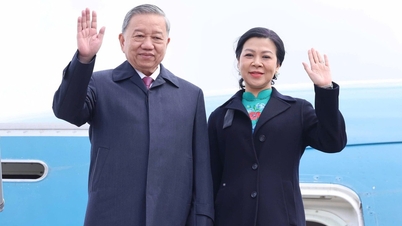

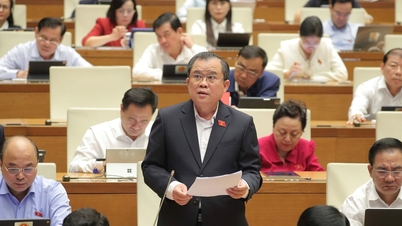

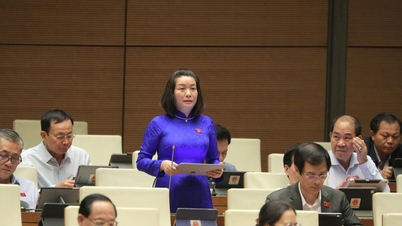

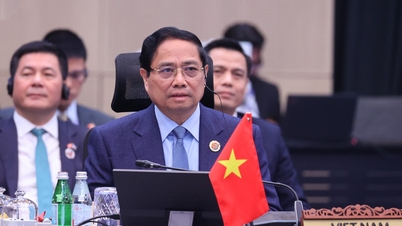






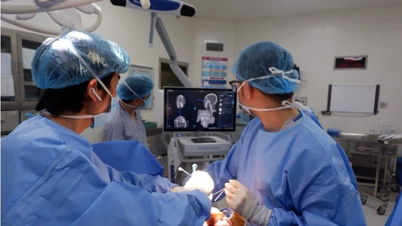
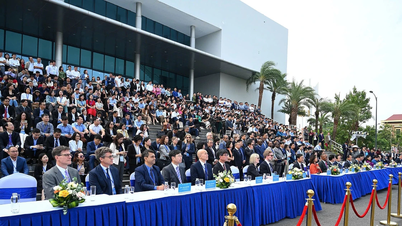

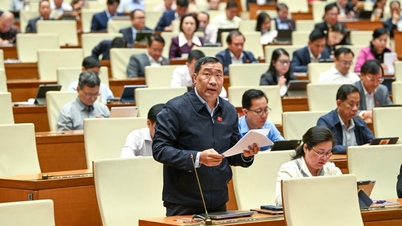
![[Photo] Party Committees of Central Party agencies summarize the implementation of Resolution No. 18-NQ/TW and the direction of the Party Congress](https://vphoto.vietnam.vn/thumb/402x226/vietnam/resource/IMAGE/2025/10/27/1761545645968_ndo_br_1-jpg.webp)













































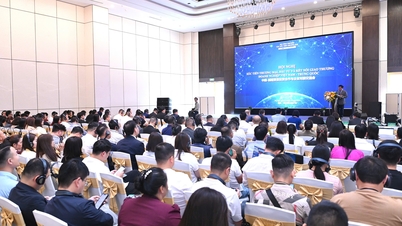






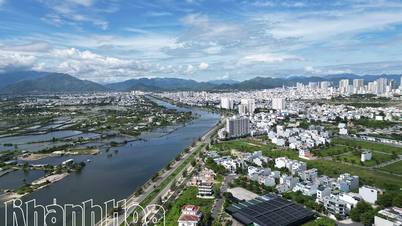

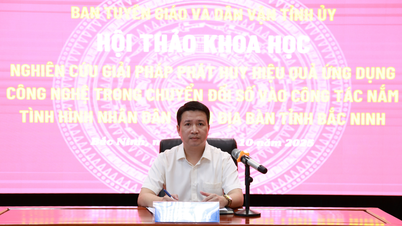

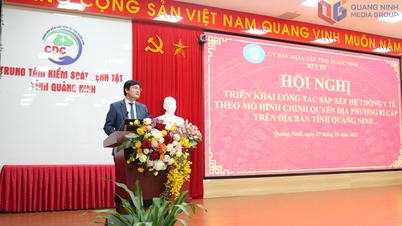

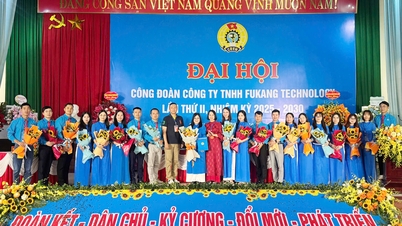

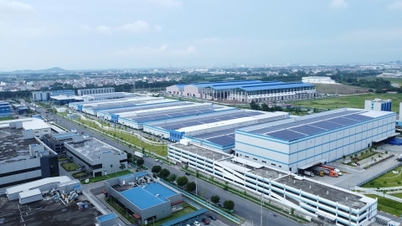













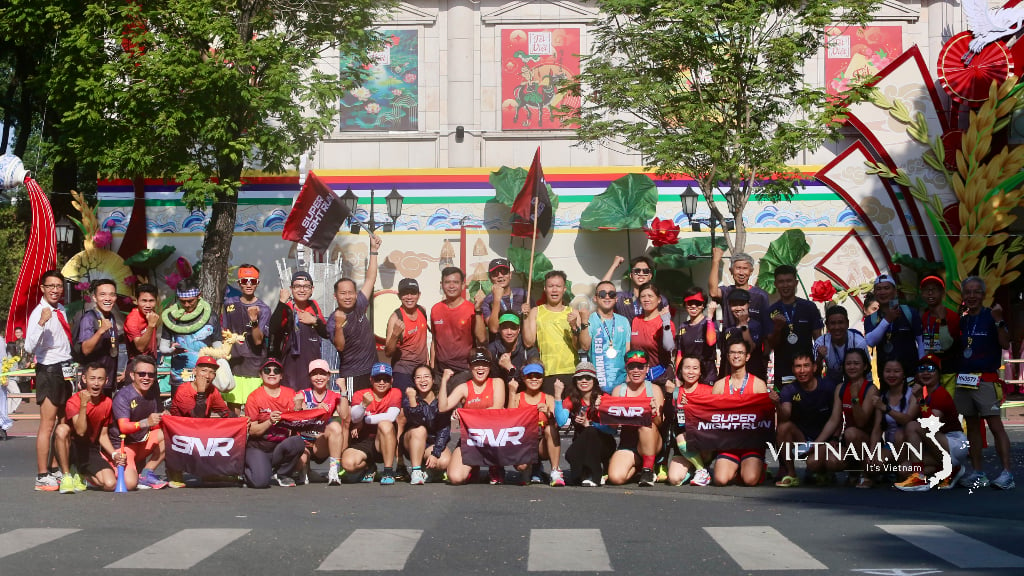

Comment (0)